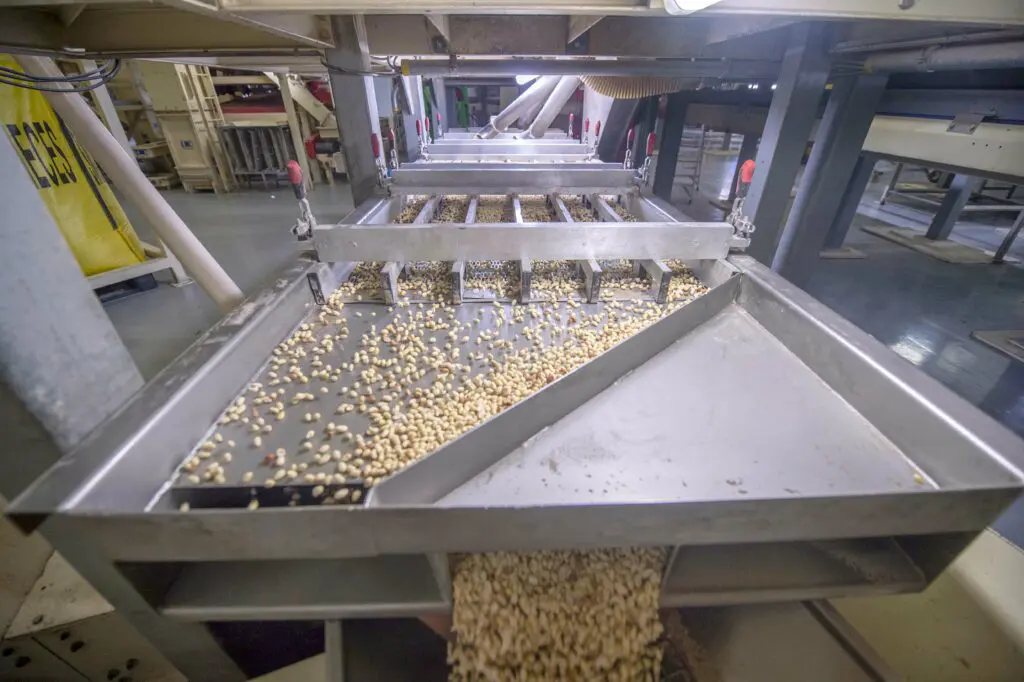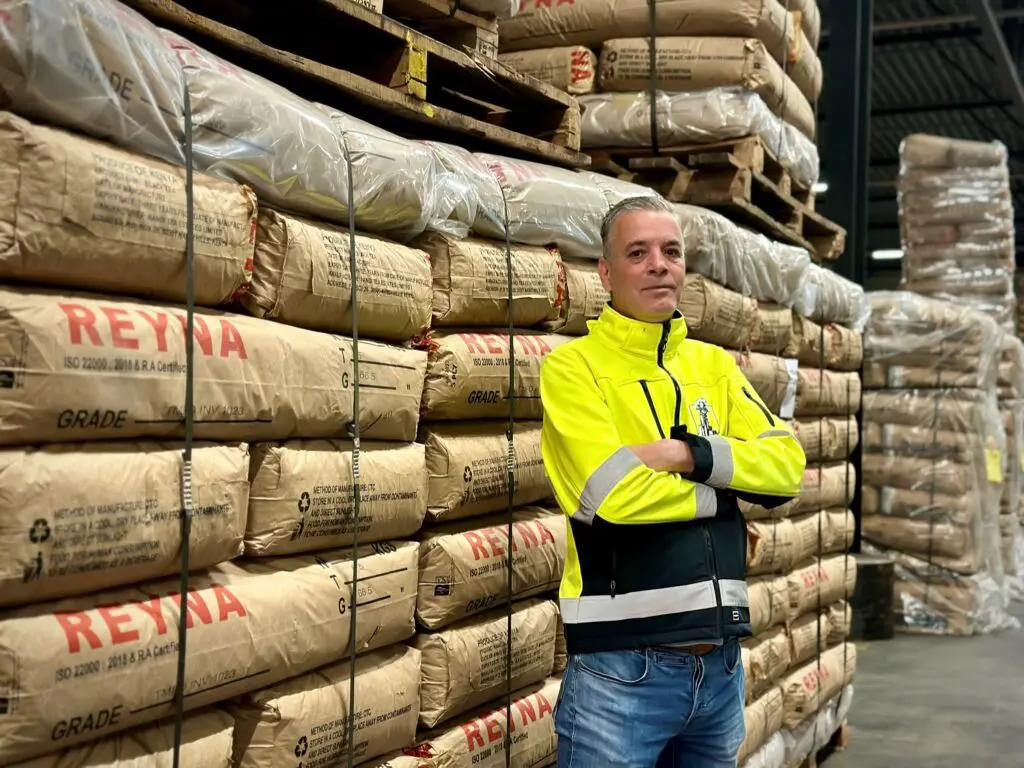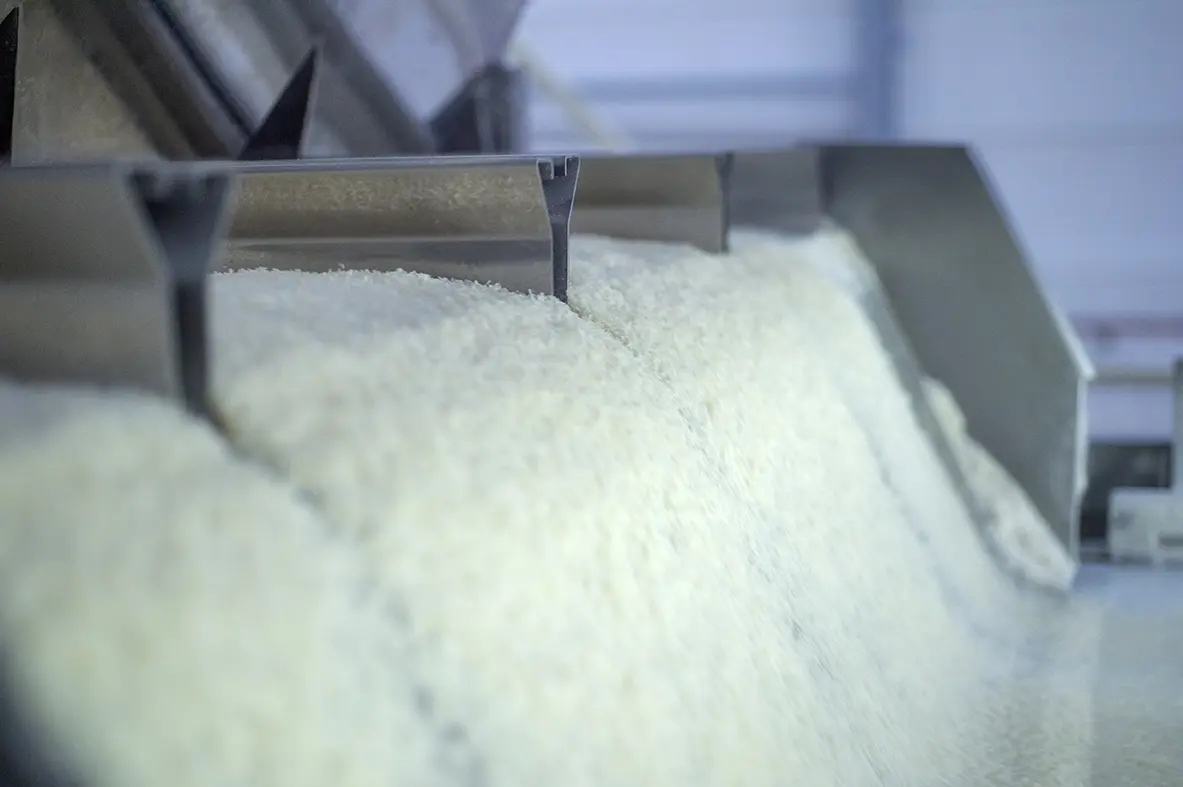Food must be safe, it’s that simple. Ensuring food safety, on the other hand, is a lot more complex. Thanks to new studies we get to know more about the risks of food, such as microorganisms that make you sick. There is a lot involved in the safe storage and production of food, Leon den Hoedt kows better than anyone. He has been involved in food safety for 30 years, of which the last 3 years at Steinweg, as Manager Quality Assurance (QA) and Quality Control (QC) for soft commodities.
“Storing products is what we do the most, it is our core business. Consider, for example, the storage of cocoa, herbs, and spices. During the year, more and more customers request to process and produce products. Think of roasting nuts and blending coconut. We even make peanut butter for a large producer.” In addition to food for humans, soft commodities also include animal nutrition.

Risk analysis of the entire chain
To guarantee food safety, Leon and his team make risk analyzes of the various processes within the organization, but also the entire chain. This results in the creation of control measures that are implemented and monitored. “That means we actually investigate what can go wrong. Based on those risks, we implement control measures to check critical control points (CCP). For example, a metal detector to prevent metal from getting into food, or instructions to clean the factory, but also guidelines for the temperature of the oven in which peanuts are roasted, to ensure that any microorganisms present are eliminated.” A risk analysis goes beyond just the storage or factory. “For example, we look at the country where the food comes from, how it is transported, the environment of the factory, etc.”
Food safety at Steinweg therefore encompasses quite a few aspects and a lot of specific knowledge. The food safety team therefore consists of five people with extensive knowledge and experience, says Leon. “As food technologists it is our job to assess and anticipate risks.” The team is split into QA specialists and QC specialists. “QA deals with standards, legislation, and customer requirements. QC performs the verification, from physical checks to microbiological research in the lab.”
Text continues after image.

Leon says that the successful assurance of food safety also has to do with internal support. “We train our people, we are present in the factory, we talk and discuss a lot internally to create a food safety culture.”
“Food safety cannot be done by halves”
“We are FSSC 22000 certified. This is a global standard for the entire food industry. We have a GMP+ certificate for animal feed. We also have certifications for organic and kosher food.” The standards and legislation that Steinweg complies with are strict, and it must be, explains Leon. “Food safety used to be an insignificant side issue. That is no longer the case. If you can’t guarantee food safety, you are not able to run a factory. If you’re doing it, you’re doing it right. “Food safety cannot be half done.” In addition to standards and legislation, customer requirements and expectations are also important to take into account, Leon explains. “For example, we spar with the sales organization of the peanut butter producer we work for. They also have their own requirements and wishes.”
After three decades in the business, Leon is far from tired of food safety. “Many people don’t realize what needs to happen before a jar of peanut butter hits the shelves. I like the challenge and diversity of my job. The field is also constantly evolving. I have been in the business for 30 years and have seen a lot of changes. The future will certainly not be boring.”
Published on: 29 June 2023
